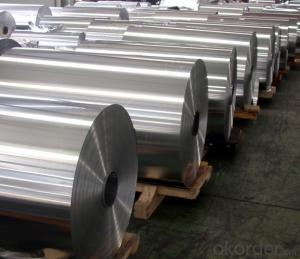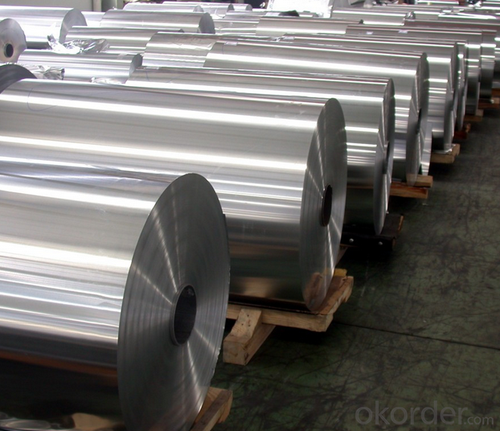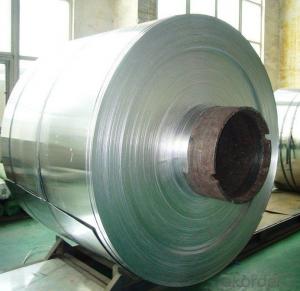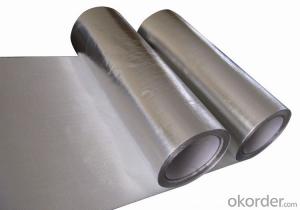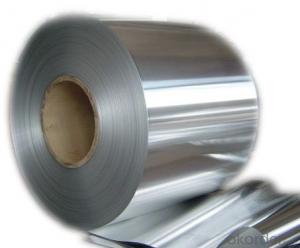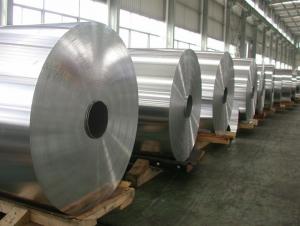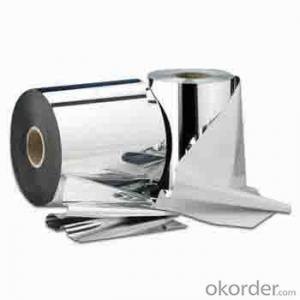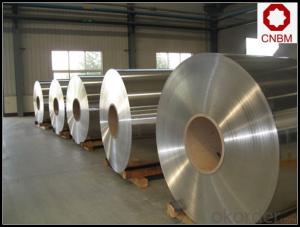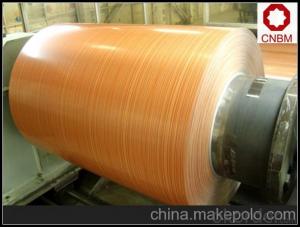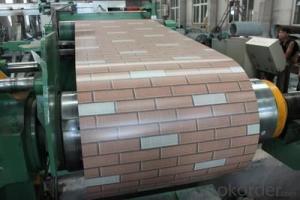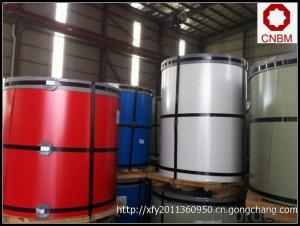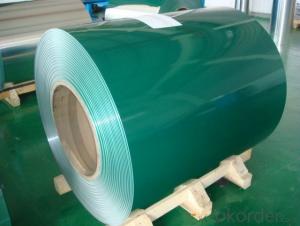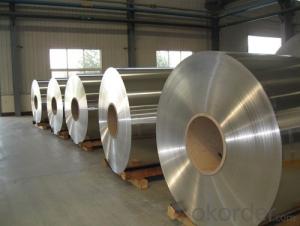3105 Color Coated Aluminum Coil for Wall Cladding
- Loading Port:
- Shanghai
- Payment Terms:
- TT OR LC
- Min Order Qty:
- 2 m.t.
- Supply Capability:
- 80000 m.t./month
OKorder Service Pledge
OKorder Financial Service
You Might Also Like
Specification
Color Coated Aluminium Coil For Wall Cladding
Description
Alloy | 1060, 1100, 3003, 8011, etc. |
Temper | H16, H18, H24, H26, H28 |
Thickness | From 0.05mm to 3.0mm |
Width | Standard width:1240mm |
Special width:1300mm, 1520mm, 1570mm, 1595mm | |
Diameter | Standard dia:1200mm |
Interior dia:150mm,405mm,505mm | |
Weight | 2.5 T/coil,3.0 T/coil |
Coating | PE, PVDF, ACRYLIC |
Surface | Embossed, mill finish, coated |
Color | AS to code RAL |
Gloss | 10-90%(EN ISO-2813:1994) |
Coating Thickness | PE: more than 18 micron |
PVDF: more than 25 micron | |
Coating Hardness(pencil resistance) | More than 2h |
Coating adhesion | 5J (EN ISO-2409:1994) |
Impact Resistance | No peeling or cracking(50 kg/cm,ASTMD-2794:1993) |
Flexibility(T-bend) | 2T |
MEK resistance | More than 100 |
Advantage | 1.High temperature resistant 2.Weathering resistant 3.Scrubbing resistant 5.Acid or alkali proof 6. Fireproof 7.Light weight material is easy to construct and install |
Out package | Wooden splint with export standard |
Application | ACP, wall cladding, facades, roofs and canopies, ceilings, signboards, blind window, display platforms, electrical panels, etc |
Manufacturing
Decoiler → Accumulator →Tension Leveler →Acid & Alkali Cleaner → Rinse →Conversion Treatment → Priming coater →Infrared Curing Oven →Main coater →Floatation Curing Oven →Strippable Film Applicator → Exit Accumulator → Recoiler
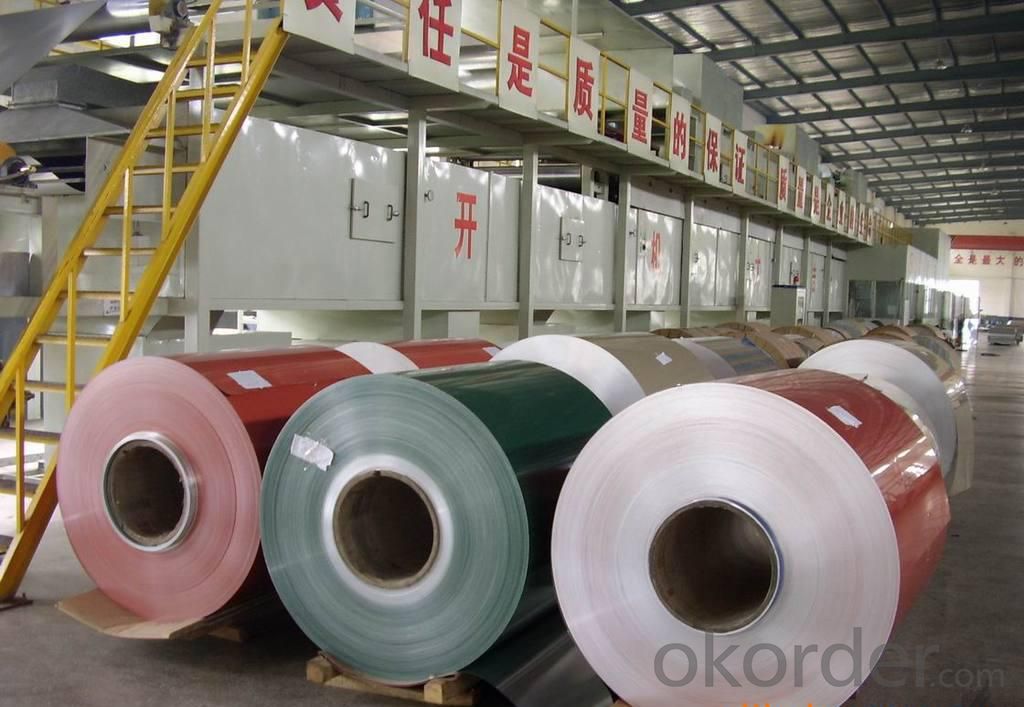
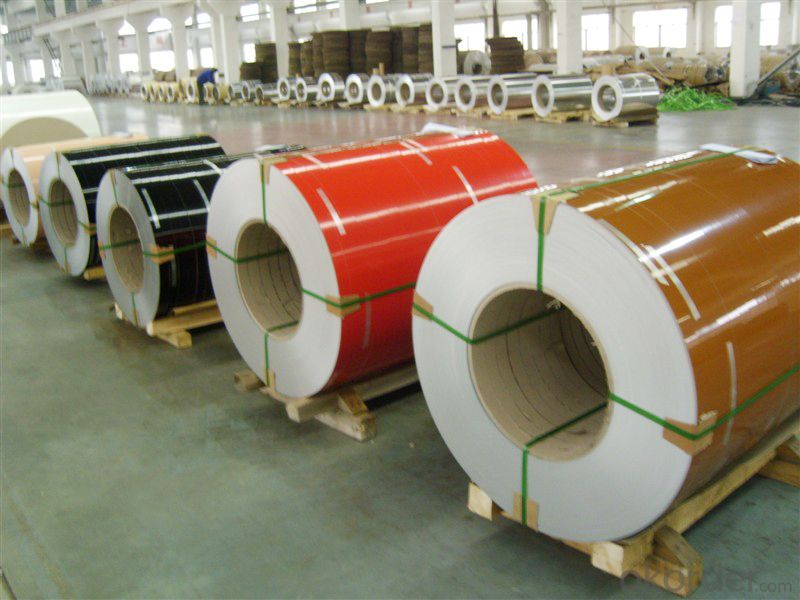
PVDF and PE Coated Aluminium Coils/Sheets
PVDF color pre coated aluminum coils/ sheets:
It is well known that fluorocarbon lacquer coating (PVDF coating) owes the best acid resistant/alkali and temperature tolerant capabilities of all painting materials. Being the best quality of precoated aluminum, PVDF coated coils are especially suitable for outdoor roofing walls and ceiling manufacturing.
Polyester (PE) color pre coated aluminum coils/ sheets :
Using high-grade polyester lacquer coating material, the finished coated coils are with delicate color uniform texture, color and diverse. It is the most popular and most common used materials in decorative usage. The PE coated aluminum are widely used in ACP( aluminum composite panel ) production and indoor ceiling usage.
FAQ
--Q: Do you provide free samples?
--A: Yes, free samples will be sent to you on freight at destination.
--Q: Can I get your latest products catalogue?
--A: Yes, it will be sent to you in no time.
--Q: What is the MOQ?
--A: 2 tons
--Q: What are your payment terms?
--A: We accept L/C, T/T.
--Q: What kinds of alloy can you supply?
--A: 1000 series: 1050, 1060, 1070, 1100, 1145, 1200
3000 series: 3003, 3004, 3105, 3104
5000 series: 5052, 5083, 5754, 5182
6000 series: 6061, 6063, 6062, 6063
8000 series: 8011, 8021
--Q: What kinds of temper can you supply?
--A: O-H112: O,H12,H14,H16,H18,H22,H24,H26,H,32,H34,H111,H112
T3, T4, T6
- Q: What are the proper storage methods for keeping aluminum coil in good condition?
- <p>To store aluminum coil properly, ensure a clean, dry, and well-ventilated environment. Keep the coil away from moisture and direct sunlight to prevent oxidation and discoloration. Store coils horizontally on wooden pallets or racks to avoid deformation. Maintain a consistent temperature and avoid extreme fluctuations. Use protective coverings or wrapping to shield the coil from dust and contaminants. Regularly inspect the coils for any signs of damage or corrosion and address any issues promptly.</p>
- Q: How should aluminum coil be stored to maintain its quality and prevent damage?
- <p>The best way to store aluminum coil involves several key practices: Store the coil in a clean, dry, and well-ventilated area to prevent moisture and dirt accumulation. Ensure the storage area is free from corrosive substances and temperature fluctuations. Use pallets or racks to keep coils off the ground, and avoid stacking heavy items on top. Protect coils with plastic covers or wrapping to prevent dust and scratches. Organize coils by size, type, and grade for easy access and to prevent damage during handling. Regularly inspect stored coils for signs of damage or corrosion and rotate stock to minimize prolonged storage of any single coil.</p>
- Q: What are the bending and forming capabilities of aluminum coils?
- Due to its inherent properties as a malleable and ductile material, aluminum coils possess outstanding abilities in bending and forming. The high strength-to-weight ratio of aluminum allows for easy shaping and forming without compromising its structural integrity. In terms of bending, aluminum coils exhibit remarkable flexibility and can be bent into various shapes and angles without any risk of fracturing or cracking. This flexibility enables the formation of tight curves or gentle bends, making aluminum coils suitable for a wide range of applications. Particularly in industries such as construction, automotive, and aerospace, where curved or intricate shapes are often needed, the flexibility of aluminum coils proves to be highly advantageous. In the realm of forming, aluminum coils can be effortlessly manipulated into different forms, including flat sheets, tubes, or intricate profiles. This versatility makes aluminum coils highly sought after in industries that prioritize customization and design flexibility. Moreover, aluminum coils can undergo various forming processes, such as roll forming, stamping, and deep drawing, which allow for the transformation into different products with precise dimensions and tolerances. These exceptional forming capabilities make aluminum coils the preferred choice for manufacturing components like automotive body panels, roofing materials, heat exchangers, and structural elements. In conclusion, the exceptional bending and forming capabilities of aluminum coils make them an ideal choice for applications that demand flexibility, durability, and design versatility.
- Q: How does aluminum ingot be processed to aluminum coil (aluminum sheet)?
- This depends on what aluminum ingot is. Small ingot needs to be casted into big one by putting into the melting furnace, and then be rolled to aluminum coil through rolling mill.
- Q: How do aluminum coils contribute to reduced maintenance costs?
- Primarily due to their exceptional durability and resistance to corrosion, aluminum coils contribute to reduced maintenance costs. Specifically designed to withstand harsh environmental conditions, including exposure to moisture, salt, and chemicals, aluminum coils differ from other metals like copper. This resistance to corrosion ensures that the coils remain intact and functional for extended periods, minimizing the need for frequent repairs or replacement. Moreover, aluminum coils are lightweight, making them easier to handle and install, thus reducing labor costs associated with maintenance activities. Additionally, their high thermal conductivity enables efficient heat transfer, resulting in increased energy efficiency and lower utility bills. Overall, the utilization of aluminum coils in HVAC systems assists in reducing maintenance expenses and extending the lifespan of the equipment, making them a cost-effective choice for both residential and commercial applications.
- Q: should i have a paper between aluminum siding and the wood
- Aluminum siding can be vented with round pop-in perforated vent plugs, these are very easy to install. I would really like to know how do you know there is condensation behind your siding?
- Q: What are the different thicknesses available for aluminum coils?
- To meet different application needs, aluminum coils come in various thicknesses. The available options typically span from 0.2mm to 6mm. The thickness required depends on the intended use of the coil. For applications that prioritize flexibility and lightweight properties, thinner coils ranging from 0.2mm to 1mm are commonly used in electronics, packaging, and building materials. Medium thickness coils, ranging from 1mm to 3mm, find frequent use in automotive parts, roofing, and cladding applications. Conversely, heavier-duty industrial applications like shipbuilding, aerospace, and construction utilize thicker aluminum coils, measuring 3mm to 6mm in thickness. To determine the most suitable thickness for a given application, it is crucial to consider the specific requirements and intended use of the aluminum coil.
- Q: How are aluminum coils shipped and transported?
- Aluminum coils are typically shipped and transported in a variety of ways, depending on their size, weight, and destination. Here are a few common methods: 1. Flatbed Trucks: For shorter distances or when shipping smaller aluminum coils, flatbed trucks are commonly used. The coils are securely loaded onto the flatbed and secured with straps or chains to prevent movement during transportation. 2. Intermodal Containers: When shipping aluminum coils over longer distances, intermodal containers are often used. These containers can be loaded onto trucks, trains, or ships, making them a versatile option. The coils are typically stacked and secured inside the container using bracing or blocking materials to prevent shifting. 3. Rail Transport: Aluminum coils can also be transported by rail, especially for longer distances. Coils are loaded onto flatcars or specialized coil cars that have built-in cradles or bolsters to securely hold the coils in place during transit. 4. Vessels: When shipping aluminum coils internationally or to distant locations, they are often transported by sea using cargo vessels. Coils are carefully loaded into the vessel's cargo hold and secured with lashings or other securing methods to prevent movement and damage during the voyage. Regardless of the transportation method chosen, it is crucial to ensure that the aluminum coils are adequately protected from moisture, dust, and other potential sources of damage during transit. Packaging materials such as moisture-resistant wrapping, protective covers, or crates are used to safeguard the coils and maintain their quality until they reach their destination.
- Q: can you use the Brasso Aluminum cleaner on aluminum wheels? i have a set of mickey thompson classic II wheels and i want to polish them up. they have water spots that are almost impossible to clean. how can i shine them up to make them almost like chrome wheels? i heard brasso works great but then i heard it damages the wheels?
- Brasso On Aluminum
- Q: The user is asking if it's possible to recycle old aluminum coils to create new ones.
- <p>Yes, you can recycle old aluminum coils into new ones. Recycling aluminum is a highly efficient process, and it's very common in the industry. Aluminum has one of the highest recycling rates among metals due to its value and the energy savings associated with recycling compared to producing new aluminum from raw materials. When you recycle aluminum, it can be melted down and reformed into new coils or other products without losing its properties. This process helps conserve resources and reduces environmental impact.</p>
Send your message to us
3105 Color Coated Aluminum Coil for Wall Cladding
- Loading Port:
- Shanghai
- Payment Terms:
- TT OR LC
- Min Order Qty:
- 2 m.t.
- Supply Capability:
- 80000 m.t./month
OKorder Service Pledge
OKorder Financial Service
Similar products
Hot products
Hot Searches
Related keywords
